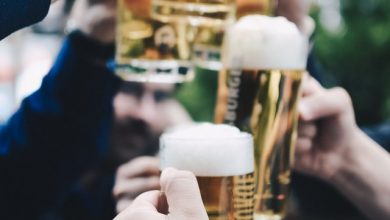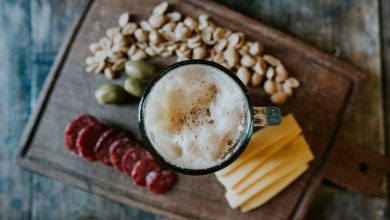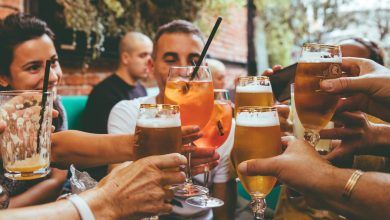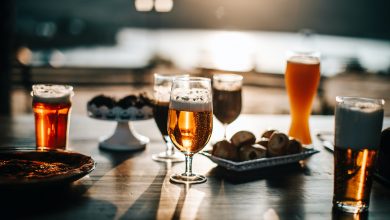Oktoberfest Beer
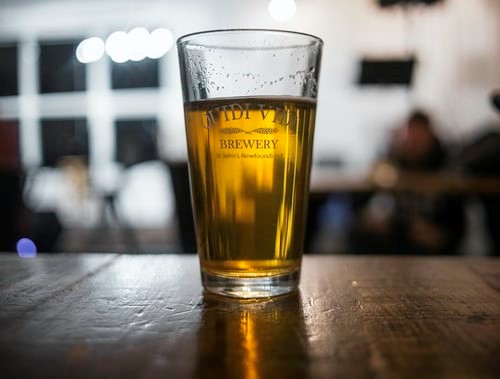
Which iconic Volksfest in the world has people gathering in their millions? Undoubtedly, Oktoberfest comes to mind. There’s no better time for a beer enthusiast to enjoy the beauty of the twilight in the company of fellow beer fanatics than during this beer festival.
Munich hosts an average of six million beer lovers annually, a figure that soundly defeats the entire population of the host city. These patrons get to drink from the large barrels of Oktoberfest beer and relish dishes of exquisite taste, long rides, and mind-blowing games. It’s always an evergreen experience for visitors during the 16 to 18 days they spend in the shindig.
A highlight of this event is the electrifying moment guests get to drink from the exclusive barrels of the traditional Oktoberfest beer. These ales are tapped ceremoniously by the lord mayor with 12 gunshots accompanying the opening. Subsequently, beer lovers proceed to pour their brew. The event gets even more vibrant with the traditional parade carried out by a handful of dignitaries to the delight of visitors.
At the Oktoberfest, no one breaks rules. Therefore, brewers hold in high esteem two of the prominent laws centering on the ingredients for making the beer and the breweries that make them. No more than six breweries have the prerogative to brew the beers served on this annual occasion. Furthermore, beers produced outside the borders of Munich don’t comply with the Reinheitsgebot regulations. Hence, the event doesn’t condone them.

What’s the Oktoberfest Beer?
The exclusive six breweries that produce beer in the Oktoberfest are worthy of mention. After all, they’re the essence of the grandiose ceremony. The beers brewed in these breweries would easily outshine those of the best California breweries for many reasons. These beers would also, undoubtedly, give the top-rated craft beers in the US a run without breaking a sweat. Here’s our complete list of the famous Oktoberfest beer.
Augustiner-Bräu
This independent brewery is way older than the Oktoberfest ceremony itself and is co-owned by the Edith Haberland Wagner and the Inselkammer families. Before then, its ownership belonged to the state.
The company produces no less than a million hectoliters of brew annually. It’s unclear when its beer first graced the Oktoberfest. However, the Augustiner beer stall appears in a picture taken in 1867. The brewery castle also starred at the event in 1903. Eventually, in 1926, the first erection of the brewery tent, Augustiner Festhalle, took place to the delight of all beer lovers at the event.
Amongst the six breweries that cater to the appetite of visitors in the shindig, only the Augustiner brewery exclusively empties its beer from its wooden barrels. It comes as no surprise, as beer connoisseurs highly prefer the beers. This preference is so much that without the use of ads, they gained traction beyond Munich.
Moreover, Augustiner brewery isn’t giving in to the pressure of the ever-competitive brewery industry anytime soon. For two decades, they’ve maintained a single label and package design. This uniqueness has earned the brewery a massive commercial success.
It’s pleasant also to know that the Augustiner brand doesn’t shirk its social responsibility. They’ve surpassed expectations by transferring 51 percent of the company’s ownership to a charitable organization. Besides, during the Oktoberfest, the brewery erects a beer tent and a beer garden on the premises.
The eight beers produced by the brewery include Augustiner Helles, Edelstoff, Augustiner Dunkles, Augustiner Pils, Augustiner Weißbier, Oktoberfestbier, Maximator, and Heller Bock. Water, hops, yeast, and grain (barley and or wheat) are the major ingredients that make up these beers.
Hacker-Pschorr
Two breweries became one for beer lovers to have the perfect beer from Hacker-Pschorr. It’s no surprise that this brewery is a lot older than the Volksfest, just like the many beers signed under the Reinheitsgebot law.
The brewery makes 15 beers in total. However, only some of the beers are regularly available. During the Oktoberfest, the brewery erects its tent at the Wiesn for the pleasure of attendees.
Beers from this brewery taste bitter, sweet, malty, and dry simultaneously. Some of the beers brewed from this brewery include:
Helles
It’s a slightly sweet, light-colored, mildly bitter beer. Before this beer undergoes bottling, it’s filtered to give it a non-cloudy appearance. The lager shares the same taste with Münchener Gold.
Oktoberfest Märzen
This beer has an extended shelf life with several colors alternating from pale through amber to dark brown. The beer has a malty flavor and a bitter taste.
Löwenbräu
The Anheuser-Busch InBev owns this brewery. Its name means “lion’s brew” when translated from the German language, and originates from a painting in the 17th century in the brewing house.
Löwenbräu company is the brain behind the Märzen beer, which is also known as Oktoberfestbier, served at the Oktoberfest. The brewery is responsible for two spectacular large tents at the Oktoberfest, namely: Löwenbräu-Festhall and Schützenfestzelt.
The taste of its beer is sharp, with spicy hop bitterness. There are eleven different beers from the Löwenbräu brewery, one of which is the Löwenbräu Dunkel. The lager is dark in color. More precisely, it has an amber to dark reddish-brown color and a smooth malty flavor. The Löwenbräu beer contains 4.5 to 6 percent alcohol.
Löwenbräu Dunkels aren’t as strong as the dark Bavarian beer, Doppelbocks. It’s the addition of Munich malts to the Dunkel that gives it a uniquely dark color. A unique brewing technique called “decoction mashing” brews this lager.
Paulaner
Love to gulp some pints of beer by the monks? Then, the Paulaner brewery has you covered. The brewery derived its name from the founder of the mendicant order, Francis of Paola. The German beer has gone beyond the walls of Munich to amass popularity and commercial success across the globe. At least two million hectoliters of beer go out from the German brewery annually to other 70 countries of the world.
All beers from this brew house stick to the Bavarian Purity Law in the bid to sustain their exquisite quality popularly known by their fans worldwide.
The Paulaner brewery has always been welcoming of change in the face of competition. They’re responsible for inventing the first-ever nonalcoholic wheat beer in the world. As a pacesetter, the brew house initiated the Paulaner Salvator Award. The award has since been a blessing to his host community in Munich.
What more? Paulaner brewery deserves a standing ovation for continually trying to minimize the amount of power and heat present in its beers. The German brewery has shown concern for its environment by engaging in an environmentally friendly production to curb the impact of the brewery on its environment.
So it’s a thumbs up for the enormous largesse of this brewery.
Spaten-Franziskaner-Bräu
The brewery belongs to Spaten-Löwenbräu-Gruppe. The company produced amber-colored Märzenbier to satisfy its ever-supportive fans. It went on to make another pale lager, Münchner Hell, with an alcohol content of 5.2 percent.
Spaten-Franziskaner-Bräu produces Oktoberfestbier every spring, getting it ready in autumn for the largest Volksfest. Drinkers delightfully have a great beer to look forward to during this time.

Staatliches Hofbräuhaus
There’s no brewery more royal than the Staatliches Hofbräuhaus, a state-owned brew house. It has been one of the longstanding beers in Munich. The noble Duke of Bavaria, named Wilhelm V, was the brain behind the recipe of the beers brewed in this company. At the moment, they produce Helles, Maibock, Weißbier, Dunkel, and Oktoberfest lagers.
History has it that beers from this brewery go beyond gratifying the belly. The brew house has, on one occasion, saved the nation from utter destruction when King Gustavus Adolphus of Sweden received 600,000 barrels of Hofbräuhaus beer during the war.
This company’s beer never lost its refreshing taste and has become popular beyond England down to the United States of America. Finally, at the Oktoberfest, Staatliches Hofbräuhaus erects some of the giant tents.
The Oktoberfest Beer Tent
These six breweries offer their beers in large tents located at the Munich. These tents are 14 in number, and the small ones are 21. Some of the enormous tents include:
Marstall
This tent catches the attention of the many guests on arrival. The traditional Oktoberfest band plays its classic songs to the listening pleasure of the guests in this tent.
Armbrustschützenzelt
Here, the iconic game Crossbowman’s Tent kicks off to make the event more exciting for the participants.
Hacker-Festzelt
It’s one of the most spacious tents in the Wiesn. Rock bands play spirited music here in the evening during their hiatus.
Schottenhamel
This tent is significant in the event. The mayor of Munich launches his beer here before every other tent proceeds to do the same. Youngsters mostly occupy the tent.
Weinzelt
This wine tent provides at least 15 wines, including Weißbier wine, to its occupants.
Ochsenbraterei
The tent provides the choicest of grilled ox dishes to the attendees.
Indeed, when it comes to Oktoberfest beer, none can contest with the prestigious and iconic Oktoberfest beer that has countlessly witnessed the gathering of millions just to pop its barrels of beer. You can as well prepare your mind for the merriment of the Oktoberfest when the next festival comes.
